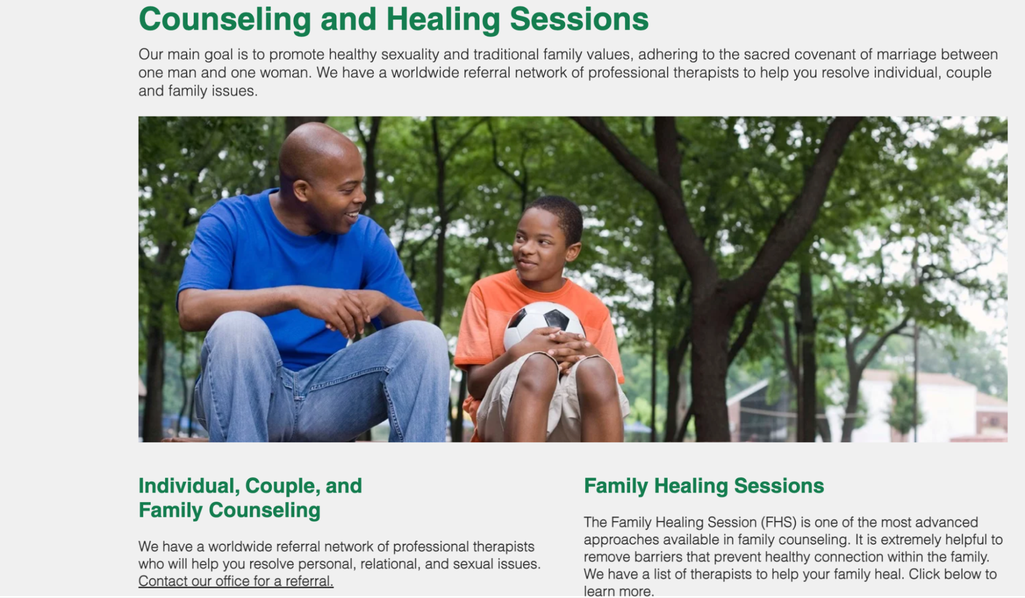
By Eliel Cruz
When I was a teenager in the early aughts, conversion therapists reigned supreme in evangelical Christian spaces, spewing pseudo-scientific techniques as a supposed “remedy” for LGBTQ identities. Growing up in the Seventh-day Adventist church and school system, LGBTQ identities were vilified and demonized at the pulpit and in our classrooms. The answer to our sexualities, according to the church, was to deny ourselves love or a partner, stay celibate, or to work on “changing” our sexuality so that we were no longer queer. There were groups and conferences with self-proclaimed “ex-gay” speakers providing testimonies about how they “overcame” their sexuality and therapists eager to “help” others pursue the same path.
According to a Williams Institute report, 7% of LGB adults ages 18 to 59 in the United States have undergone conversion therapy. About 81% of those individuals were in “therapy” with religious leaders, which heightened suicidal thoughts and ideation in comparison to LGB people who have not gone through conversion “therapy” practices. Across the globe, these numbers fluctuate between 2% all the way up to 34% of LGBTQ+ people having undergone conversion practices.
By the mid-2010s, these groups and their influence began to dwindle as national organizations like Exodus International, one of the longest-running and largest ex-gay organizations, shuttered its doors after 37 years, admitting that not only did conversion or reparative therapy not work, it was harmful to the LGBTQ people subjected to it. Former Exodus International President Alan Chambers said: “I am sorry for the pain and hurt many of you have experienced. I am sorry that some of you spent years working through the shame and guilt you felt when your attractions didn’t change,” admitting his own attractions to men had not gone away, despite being married to a woman and having children.
The closing of Exodus International signaled the end of a decades-long push for ex-gay therapy, or so it would seem. But in recent years, as legislation has passed across the country to ban conversion therapy for youth, a new push for so-called “change therapy” has re-emerged with the same flawed premise and tactics of the ex-gays of old. A group called Changed Movement, formed in response to legislation banning conversion therapy in California, is one such group using new language to promote the same-old conversion therapy.
Conversion or reparative therapy, loosely defined, is any attempt to influence and change someone’s sexual orientation or gender identity. Often, these counselors blame trauma or violence, family dynamics, or your upbringing as the root of the deviant sexuality or gender identity. Changed Movement shares stories of individuals blaming these roots as the cause of their sexuality or gender. This assertion is false and only serves to shame the individual, often for reasons beyond their control. Importantly, ex-gay groups like the Changed Movement do not seem to reckon with the fluidity of sexuality and gender and, as proponents of this ideology typically do, seemingly view things as either gay or straight, trans or cisgender.
Leading medical and psychiatric associations have condemned conversion practices as pseudo-scientific, ineffective, and harmful to the person undergoing them. Still, groups like Changed Movement have reemerged, using religious language to promote change therapies.
“It is very difficult to stop all conversion therapy from happening for several reasons. One is that legislation is a powerful tool. We’ve made very good progress, with about half the states now having passed laws that prohibit licensed therapists from engaging in conversion practices. I hate to call it therapy,” said Shannon Minter, Legal Director at the National Center for Lesbian Rights (NCLR), who, through its Born Perfect campaign, has successfully litigated conversion therapy bans. “But that’s only a part of the picture. Those laws don’t do anything to stop people who are engaging in it, such as religious counselors. Which is a very big chunk of what goes on.”
Conversion therapy efforts adapt their language to evade laws, Minter said, making it difficult to stop.
“What will happen is these counselors and therapists become very good — every move we make, they have a counter move — which is repackaging what they’re doing with new terminology, always trying to make it sound like something benign. Always trying to make it sound like something harmless,” Minter said. “The only remedy we really have is to educate parents.”
In a report by the Trevor Project, researchers found at least 1,320 conversion therapy practitioners in almost all 50 states, including states with active conversion therapy bans for minors. Almost half of those counselors are unlicensed, and most are attached to some sort of religious ministry. While couching their language and pretending to be there to help LGBTQ people, the danger of these groups and practitioners cannot be understated.
Recently, an ex-gay group called Coming Out Ministries bought a building across from my alma mater, Andrews University, a Seventh-day Adventist University, intending to “work closely” with the university on LGBTQ issues “from a redemptive perspective.” Groups like Changed Movement and Coming Out Ministries see LGBTQ young people’s identities as “confusion” instead of who they are intrinsically. Their ideology stems from a theological understanding of sexuality that does not take into account science or the world as it exists around them. Anti-LGBTQ theology fuels conversion therapy, and it’s not only flawed but also inherently harmful and violent.
As a queer person of faith, I reject theology and religious practices that cause harm, as it is not from God. The history and devastating impacts of ex-gay practices are clear in the irreparable damage it has caused to large swathes of the LGBTQ community raised in religious settings. The re-emergence of ex-gay groups, however covertly or obscure in language they may be, is an alarming and dangerous trend. More must be done to stop these groups, and it’s not going to be solely via the courts. It will take communities denouncing any and all change practices as not only ineffective but dangerous to young people — and in some cases, it’s a matter of life or death.
Complete Article ↪HERE↩!


:max_bytes(150000):strip_icc():focal(723x147:725x149):format(webp)/simon-kent-fung-083123-1e444f4a791642a79132c2840cbec81c.jpg)
:max_bytes(150000):strip_icc():focal(424x0:426x2):format(webp)/Alana-Chen-3-082923-c06d04caca04401e96136bafbe9b4239.jpg)
:max_bytes(150000):strip_icc():focal(532x0:534x2):format(webp)/Alana-Chen-1-082923-b703f217c1f345c2b98eb1e82d366dd8.jpg)
:max_bytes(150000):strip_icc():focal(749x0:751x2):format(webp)/Joyce-Calvo-082923-12031cd566fa439e97ffa88efc5e3cf7.jpg)

